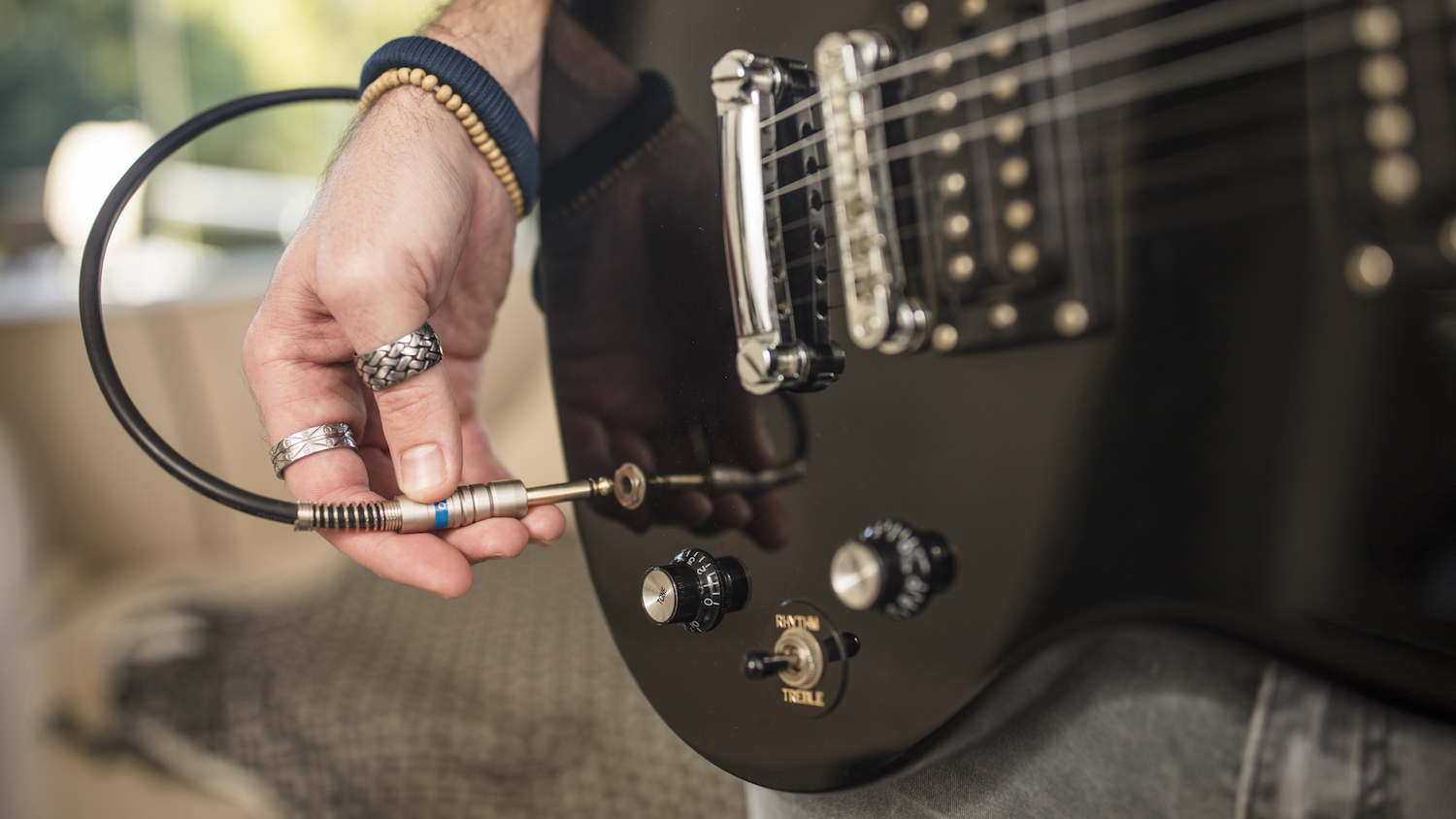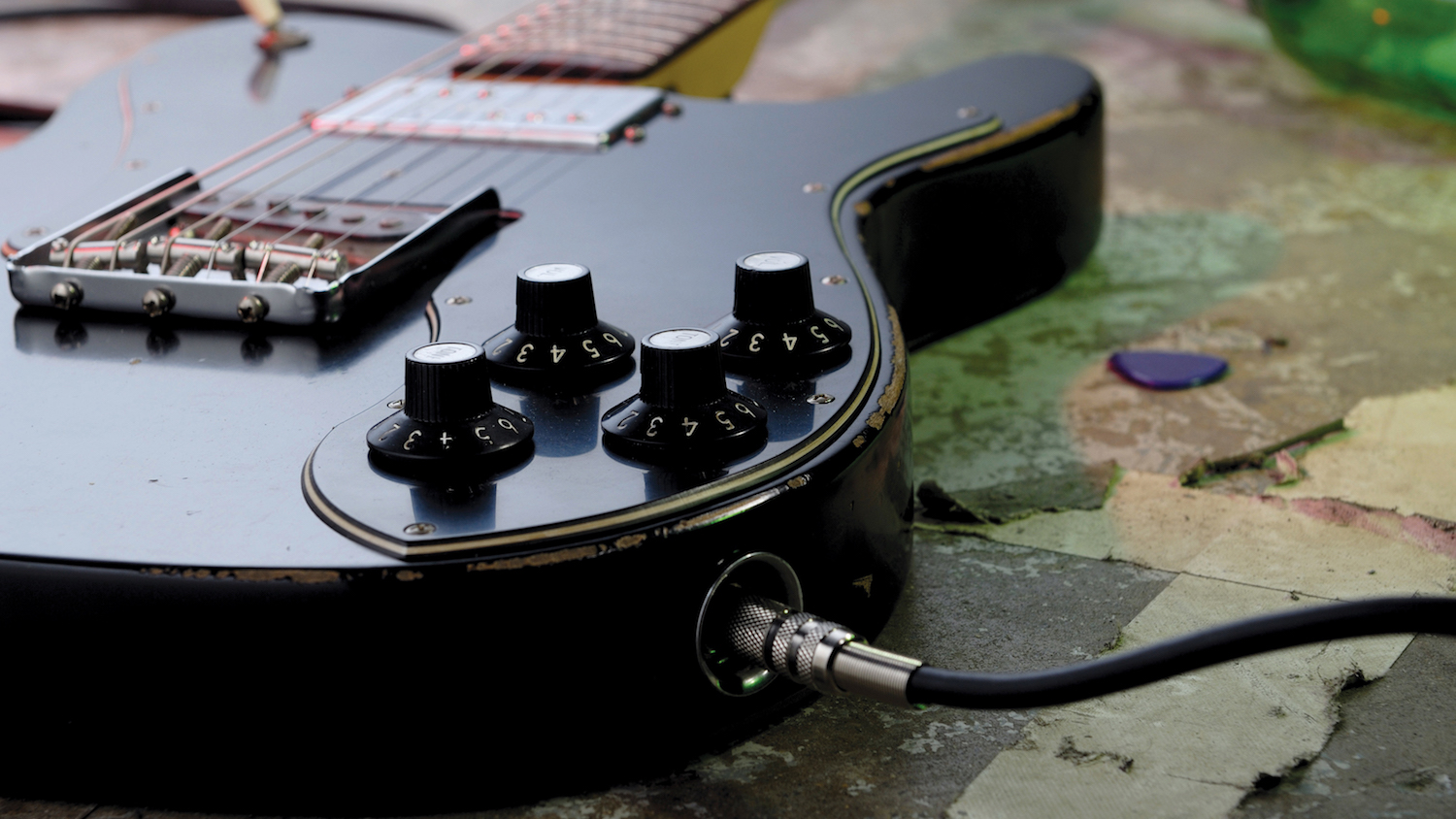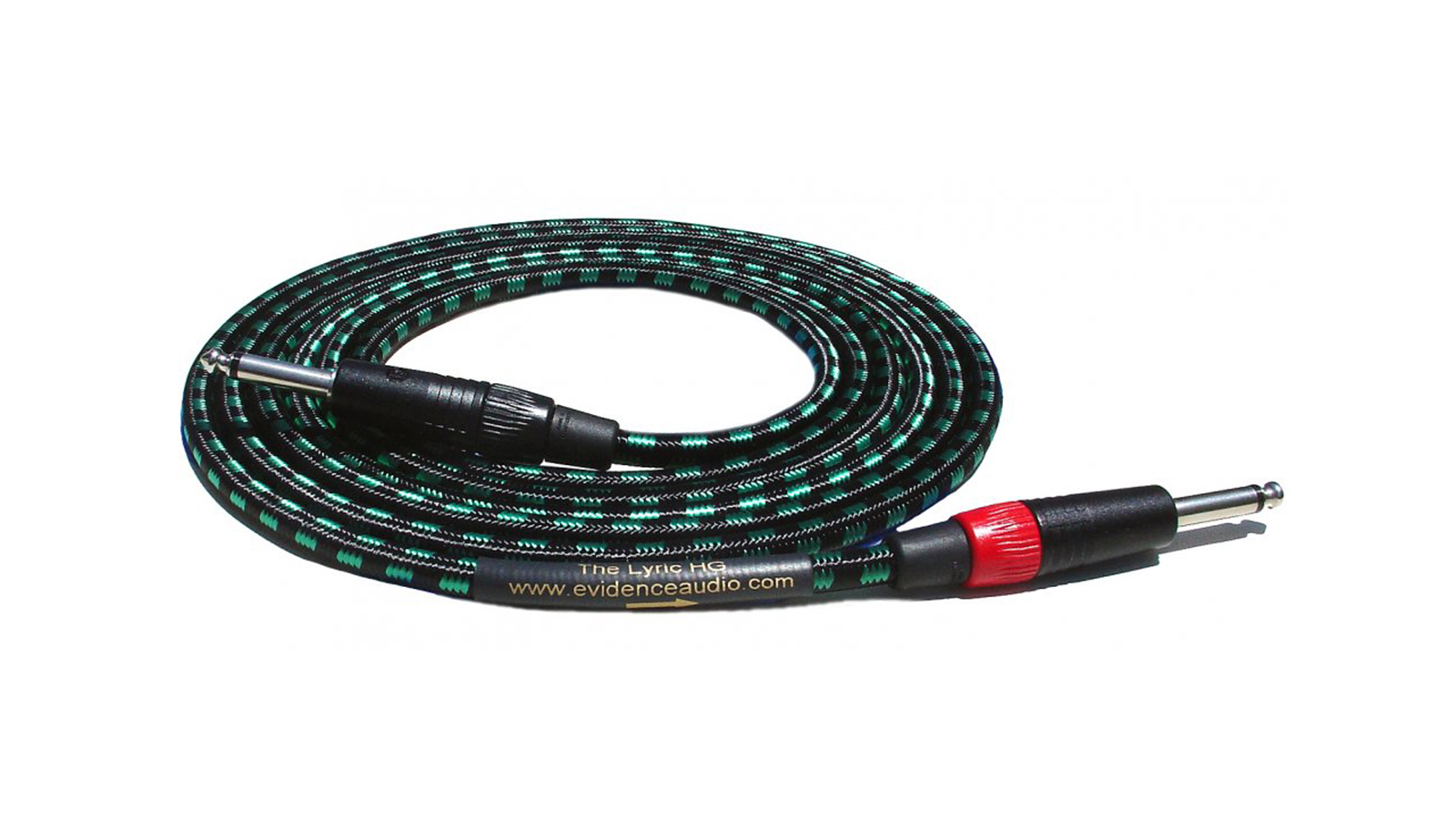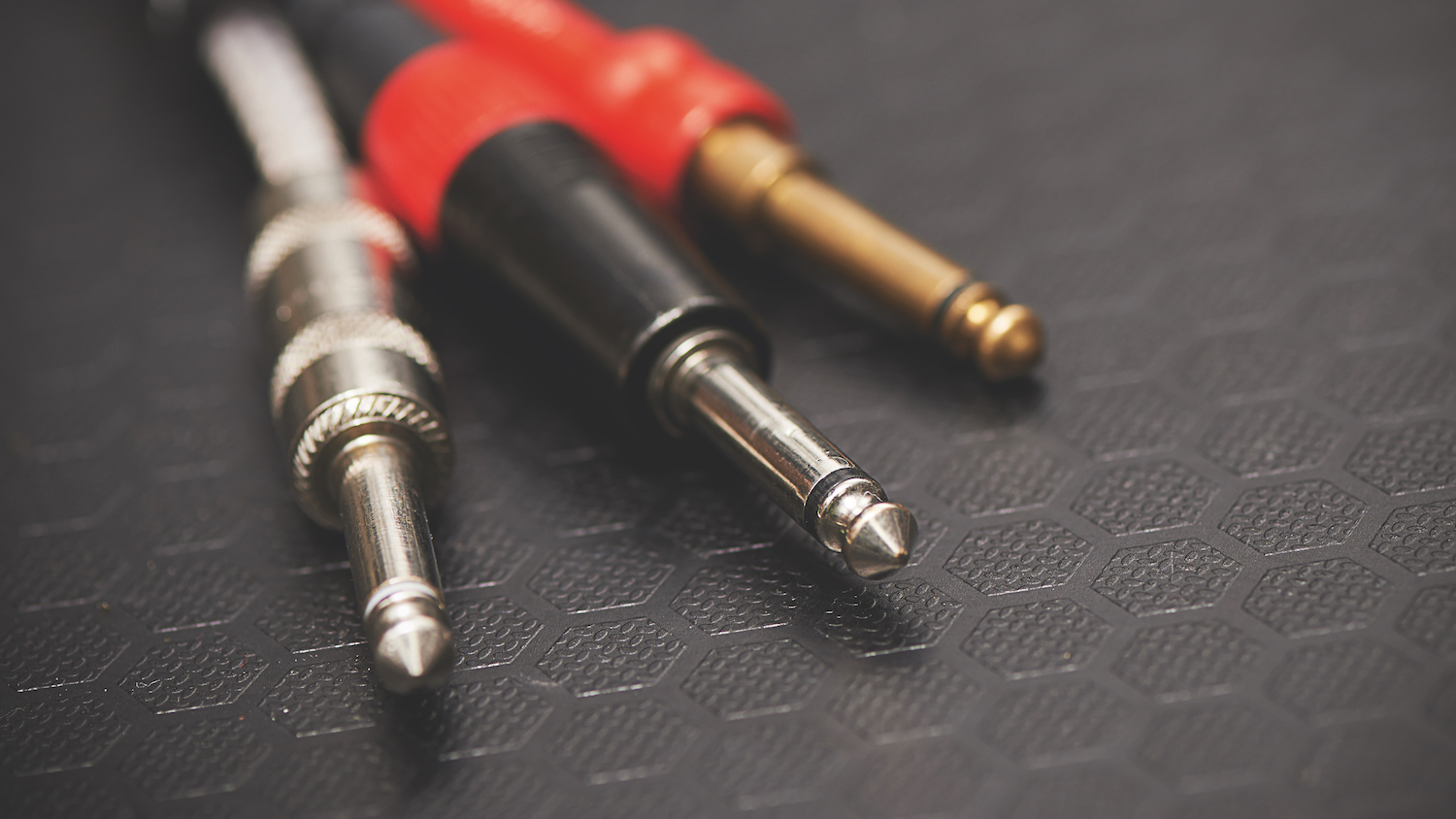How much difference does your guitar cable actually make?
Exploring the science behind cables and how much impact they have on your sound

As guitarists, we look for any opportunity to improve our rigs. That could be through changing a key component, or in fine-tuning what we have available to us. For the former, the obvious targets come in the guitars themselves, or our amps or pedals. The latter approach could involve upgrading the guitar cables, pedalboard power supplies or even the guitar picks we use.
Cables are a big one; for such a seemingly innocuous part of the signal chain, there sure is a lot of hype out there about certain brands and the mystical powers their cables promise over your tone.
Have you ever considered the cable you use could be letting you down? Or does the guitar cable you use have, in fact, no discernible impact on your sound? It’s a question we’ve wondered for a while, so we set about trying to find some answers.
- The best guitar cables for acoustic, bass and electric guitar
Why guitar cables are vital

A quick glance at any guitar retailer’s website will show cables largely fall into two categories; cables that market themselves as cables, and cables that market themselves as good cables. For every basic, run-of-the-mill “3-meter black” cable, you’ll see another promising magical qualities that will give you the most transparent tone you’ve ever heard.
We all know a good quality cable is a vital part of our signal chain, but how much do any of us judge cable performance above it simply working and not having to think too much about it? Well, it turns out, quite a lot of players do. The cable we use is another variable in the chain and, as we know, a chain is only as strong as its weakest link. So, it makes sense for us to examine further.
The science part
To help us answer our question, it may be helpful to gain some understanding of how guitar cables work so we can identify areas where some may be better than others. Crucially, when talking about guitar cables, it’s important to understand they are ‘passive’ components, which means they can’t add to or boost a signal themselves. So, if you hear of cables promising ‘enhanced bass frequency response’, it likely means they’re cutting frequencies in other areas to give that effect. This is due to something called capacitance.
It’s important to understand that [guitar cables] are ‘passive’ components, which means they can’t add to or boost a signal themselves
Primarily, guitar cables have an inherent capacitance, which means they can hold an electrical charge. As you might expect, you don’t want the cable to ‘hold’ the charge; you want it to release everything it receives from the guitar directly to the amplifier. Hence, cable brands tend to focus on their products having low capacitance as being of benefit to the user. This is because capacitors, when placed as part of an audio signal, have the effect of acting as a low-pass filter, i.e. they cut frequencies which go above a certain point. So, that’s it settled then? Look for low capacitance above all else? Well, no, not exactly…
Get The Pick Newsletter
All the latest guitar news, interviews, lessons, reviews, deals and more, direct to your inbox!
You see, when you add electric guitar pickups into the mix – which are inductive – you add further variables. For guitars lacking a bit of top-end spark, you probably will hear an improvement from a low capacitance cable. But, on the other hand, if your guitar sounds thin, a higher capacitance ‘standard’ cable may provide more desirable results. As with so many things in music; there is no definitive right or wrong answer, only what works for you.
It’s worth experimenting but it’s also important to note here that this refers to passive pickups, so users of active pickups by the likes of EMG will likely notice little or no difference. So, save your money, shredders.
Does cable length affect sound quality?

Another factor that can influence your tone is the length of cable you’re using. Apparently, Eddie Van Halen could tell if he was using a five or ten meter cable by ear alone and this is likely due to longer cables having increased capacitance, and therefore ‘sucking’ away treble frequencies.
This is because guitar pickups push out an electrical signal, but that signal has a finite amount of strength. The longer the distance we’re trying to push it, the more likely it is to lose strength over a given distance. For this reason, unless you’re using specialist cables with high-end materials, we’d always recommend using the shortest cable you can.
What makes expensive cables cost so much?
As we mentioned earlier, there are guitar cables which can run to some serious money. The brands behind them, like Monster and Vovox, are clearly selling plenty of them so there must be some benefit, right? Absolutely. Aside from any capacitance benefits, you can reasonably expect higher-end cables to have had much better levels of quality control across the manufacturing process. They will be less likely to fall apart on the inside, resulting in serious degradation of signal. And, most importantly, the components which handle the electrical part of the process will be of a higher quality and will usually offer protection from interference and microphonics.
Whether you’ll notice any tonal benefits, as such, is dependent on a multitude of things including your guitar, its pickups, the guitar amp, and even the guitar strings. But even if you don’t, it pays to invest in decent cabling so you don’t have to replace them so often.
Cable age
The final point we’ll make regards the age of the cables you’re using. Standard, cheap cables simply aren’t designed to last a lifetime. And when they die – which they will – they quite quickly become useless.
Age can affect cables in several ways, and the uncomfortable truth is that almost all these ways are down to you. Yanking the cable out the amp too forcefully? Storing it in humid environments? Stepping on it or – heaven forbid – resting your amp on top of it? Each of these mishaps could be the downfall of your cabling, so be sure to treat them with the respect they deserve.
Conclusion

While there’s no way we could outright confirm expensive guitar cables will improve your sound, there is every scientific and technological reason to believe they could. You’ll know your guitar tone better than anyone, and you’ll know where it’s lacking. If you believe you’re losing top-end due to a particular cable, then there’s every evidence you could be right.
What we would suggest, however, is making tone and signal strength only part of the equation when you’re looking for a new guitar cable. Sure, it’s the most important element, but don’t overlook cable quality and durability in your decision-making. Is it better to buy one $40 cable that lasts a decade, or a new $10 cable every year? We know which we’d advise…
Chris Corfield is a journalist with over 12 years of experience writing for some of the music world's biggest brands including Orange Amplification, MusicRadar, Guitar World, Total Guitar and Dawsons Music. Chris loves getting nerdy about everything from guitar gear and synths, to microphones and music production hardware.
“It holds its own purely as a playable guitar. It’s really cool for the traveling musician – you can bring it on a flight and it fits beneath the seat”: Why Steve Stevens put his name to a foldable guitar
“Finely tuned instruments with effortless playability and one of the best vibratos there is”: PRS Standard 24 Satin and S2 Standard 24 Satin review










